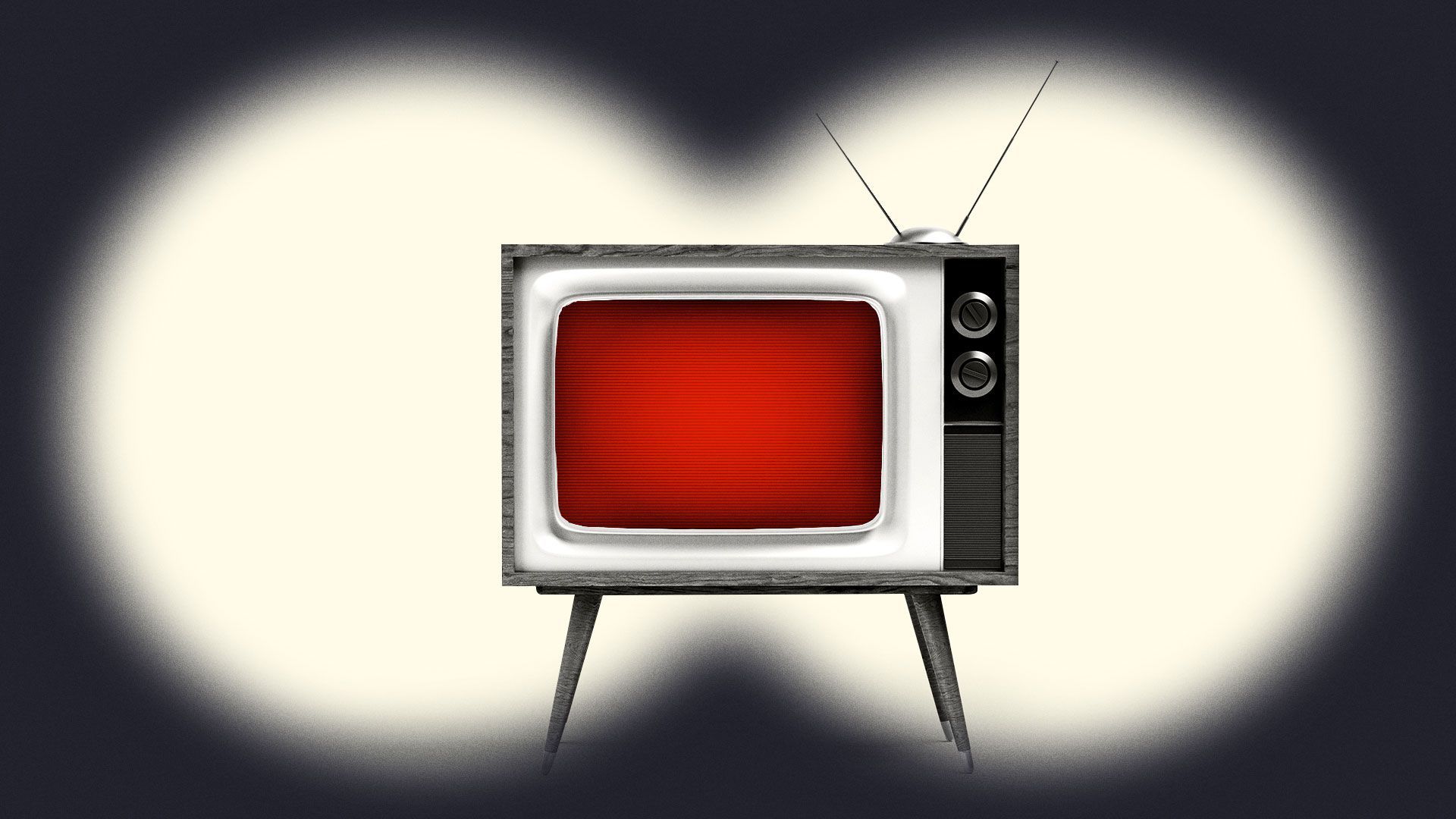Congress focuses on cable providers' role in misinformation
Add Axios as your preferred source to
see more of our stories on Google.

Illustration: Eniola Odetunde/Axios
Congress' effort to squelch misinformation is broadening to target the cable companies that bring right-wing networks like Newsmax, OANN and Fox News to Americans' screens.
Why it matters: Conspiracy theories, false election claims, anti-vaccination propaganda and other kinds of misinformation spread through a complex ecosystem: Lies bubble up online, then get amplified when cable news channels repeat them, then spread further via social media. Breaking the cycle will require more than just stricter content moderation by online platforms.
The big picture: Democratic lawmakers have mostly aimed their ire over misinformation at giant tech platforms, but now they're taking aim at other gatekeepers — TV providers like Comcast and AT&T.
Driving the news: Lawmakers will grill witnesses about the role of cable and broadcast companies in disseminating disinformation and extremist content in a hearing Wednesday before the House Energy & Commerce Committee.
- Earlier this week, California Democrats Reps. Anna Eshoo and Jerry McNerney wrote to 12 cable, satellite and streaming TV companies expressing concern about the role the firms play in spreading misinformation.
- The letters, which went to Charter, Roku, Hulu, Dish, and others, asked the "moral or ethical principles" the companies apply in deciding which channels to carry, and asked about plans to continue carrying the networks in question.
Yes, but: Republicans accused the Democrats of attempting to chill free speech.
- "Public officials using their platform to pressure private companies to censor media outlets they disagree with — that sounds like actions from the Chinese Communist Party, not duly-elected representatives of the United States Congress," E&C ranking Republican Cathy McMorris Rodgers plans to say, according to an excerpt of her opening statement.
- Republican FCC commissioners Brendan Carr and Nathan Simington also criticized the letters. Carr said "the Democrats are sending a message that is as clear as it is troubling — these regulated entities will pay a price if the targeted newsrooms do not conform to Democrats’ preferred political narratives."
Flashback: Democrats were outraged when former President Trump called for the FCC to revoke broadcast licenses over content that was critical of him.
What to watch: Expect liberal media bias to be a key talking point for Republicans, who will likely criticize Democrats for unfairly targeting content that doesn't align with their political views.
- Democrats, meanwhile, will likely home in on whether traditional media companies are knowingly allowing false information and conspiracy theories to spread on their networks, and what they are doing to verify such mis- and disinformation before it airs.
Reality check: Congress doesn't have direct power to tell cable companies not to carry certain channels, nor does the FCC. The hearing is meant to draw attention to the issue and expand the debate on problematic content beyond Big Tech.
Be smart: This is a more complicated issue than the platforms' use of algorithms and the spread of misinformation online.
- Cable networks have little choice for distribution beyond cable operators to reach a wide audience. That makes any move to cut them off much bigger deal than reducing the number of times a story appears in Facebook's Newsfeed.
- And Democrats aren't letting up on tech companies either — E&C Chairman Frank Pallone led a letter to Facebook Tuesday seeking answers on how the company's tools allowed extremist content to spread.
